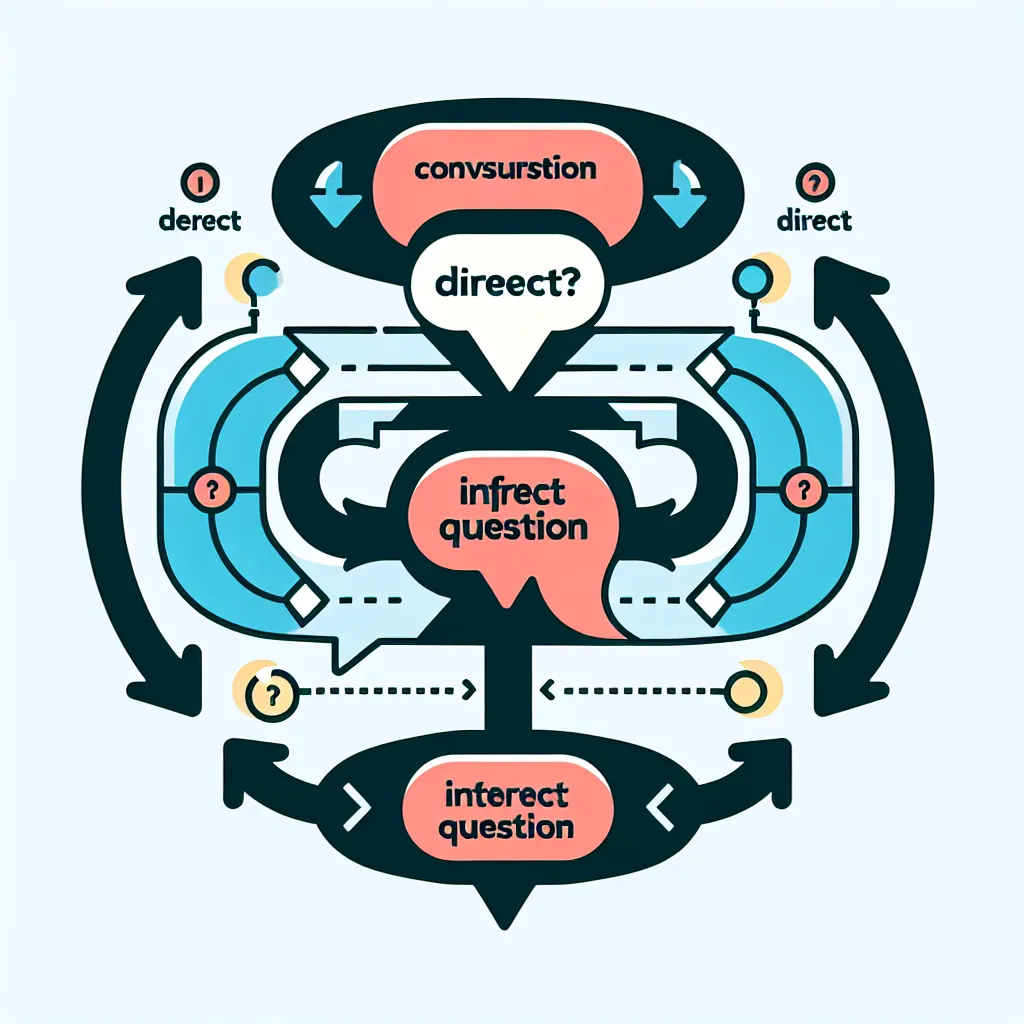Are you struggling with forming questions in English? Mastering interrogative sentences is crucial for effective communication, whether you’re a beginner or an advanced learner. In this comprehensive guide, we’ll explore ten proven tips to help you become proficient in constructing and using English questions. Let’s dive in and unlock the secrets to confident English conversations!
1. Understand the Types of English Questions
Before we delve into the tips, it’s essential to recognize the different types of interrogative sentences in English. There are five main categories:
- Yes/No questions
- Wh-questions
- Tag questions
- Choice questions
- Indirect questions
Each type serves a specific purpose and follows distinct grammatical rules. By familiarizing yourself with these categories, you’ll be better equipped to form accurate questions in various situations.
 Types of English Questions
Types of English Questions
2. Master Question Words
Wh-questions are among the most common in English. To excel in forming these questions, you need to be comfortable with question words such as:
- Who
- What
- When
- Where
- Why
- How
Practice using these words in different contexts. For example:
- “Who is your favorite author?”
- “What time does the movie start?”
- “When is your birthday?”
- “Where did you go on vacation?”
- “Why do you enjoy learning English?”
- “How do you prepare for exams?”
Remember, the question word usually comes at the beginning of the sentence, followed by the auxiliary verb and the subject.
3. Learn Auxiliary Verb Placement
Auxiliary verbs play a crucial role in forming questions. The most common auxiliaries are:
- Be (am, is, are, was, were)
- Do (do, does, did)
- Have (have, has, had)
In yes/no questions and most wh-questions, the auxiliary verb comes before the subject. For example:
- “Are you studying English?” (Not: “You are studying English?”)
- “Does she like coffee?” (Not: “She does like coffee?”)
- “Have they finished the project?” (Not: “They have finished the project?”)
Practice this inversion regularly to make it second nature.
4. Use Question Tags Correctly
Question tags are short questions added to the end of statements to seek confirmation or agreement. They can be tricky for English learners, but with practice, you’ll master them. The basic rule is to use the opposite polarity in the tag:
- Positive statement → Negative tag
- Negative statement → Positive tag
Examples:
- “You’re from France, aren’t you?”
- “She doesn’t speak Spanish, does she?”
- “We’ve met before, haven’t we?”
Pay attention to the auxiliary verb and pronoun used in the main clause to form the correct tag.
5. Practice Indirect Questions
Indirect questions are a polite way to ask for information. They often begin with phrases like:
- “Could you tell me…”
- “Do you know…”
- “I wonder if…”
The word order in indirect questions differs from direct questions. The subject comes before the verb:
- Direct: “Where is the nearest bank?”
- Indirect: “Could you tell me where the nearest bank is?”
Using indirect questions can make your English sound more sophisticated and polite.
 Indirect Questions Practice
Indirect Questions Practice
6. Utilize Online Resources and Apps
Take advantage of the wealth of online resources available for practicing interrogative sentences. Some excellent options include:
- Duolingo: Offers interactive lessons on question formation
- Quizlet: Provides flashcards and quizzes for question words and structures
- BBC Learning English: Features videos and exercises on various question types
These tools can supplement your learning and provide additional practice opportunities.
7. Engage in Conversation Practice
There’s no substitute for real-world practice. Engage in conversations with native speakers or other English learners to hone your question-asking skills. You can:
- Join language exchange websites like Tandem or HelloTalk
- Participate in English conversation groups in your area
- Practice with a language learning partner online
The more you practice, the more natural and confident you’ll become in forming questions.
8. Watch English Media with Subtitles
Immerse yourself in natural English conversations by watching movies, TV shows, and YouTube videos with English subtitles. Pay attention to how questions are formed and used in different contexts. This exposure will help you internalize correct question structures and improve your overall comprehension.
For more tips on improving your English through media, check out our article on how to master English sentence variety.
9. Focus on Intonation and Stress
In spoken English, intonation and stress play a crucial role in distinguishing questions from statements. Practice the rising intonation typically used at the end of yes/no questions and the falling intonation used in wh-questions. Record yourself asking questions and compare your intonation to native speakers to improve your pronunciation.
10. Use Question Formation in Writing
Don’t limit your practice to speaking. Incorporate question formation in your writing as well. Try:
- Writing emails that include questions
- Participating in online forums where you can ask and answer questions
- Keeping a journal where you reflect on your day using interrogative sentences
This will help reinforce proper question structures and make them more automatic in your everyday English use.
Conclusion
Mastering English interrogative sentences takes time and practice, but with these ten tips, you’ll be well on your way to asking questions like a native speaker. Remember to focus on the different types of questions, pay attention to word order, and practice regularly in various contexts. Don’t be afraid to make mistakes – they’re a natural part of the learning process.
As you continue to improve your question-forming skills, you may also want to enhance other aspects of your English. For example, learning how to use pronouns correctly can greatly improve your overall language proficiency. Check out our guide on how to master the use of pronouns in English for more insights.
Keep practicing, stay curious, and soon you’ll find yourself confidently asking questions in any English conversation. Do you have any other tips for mastering interrogative sentences? Share your experiences in the comments below!




